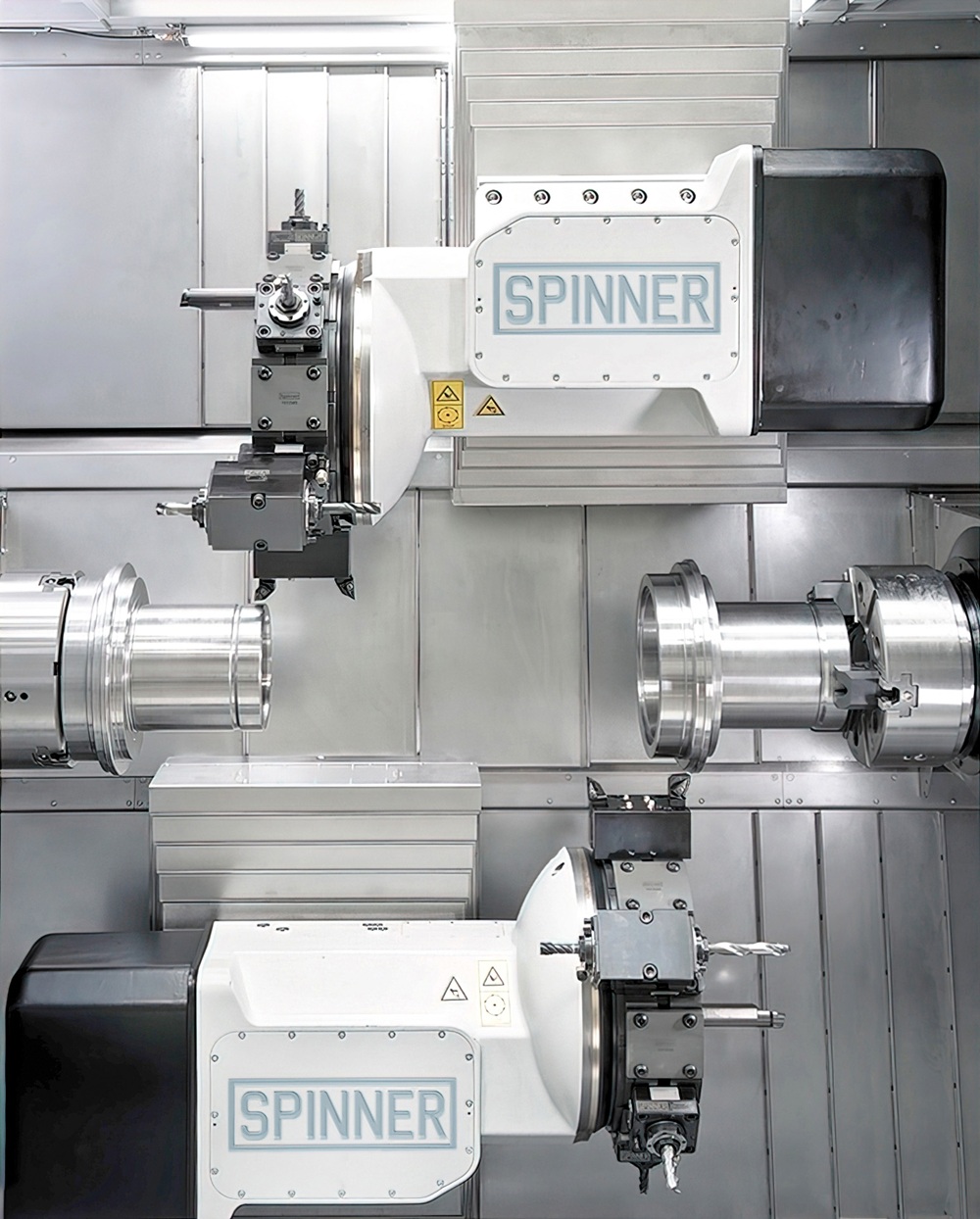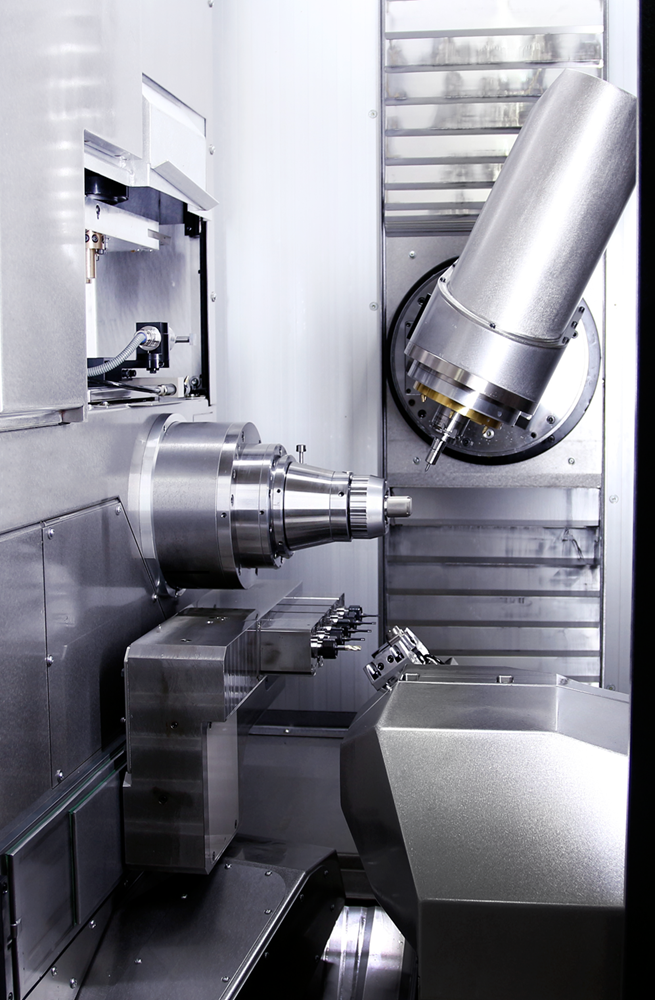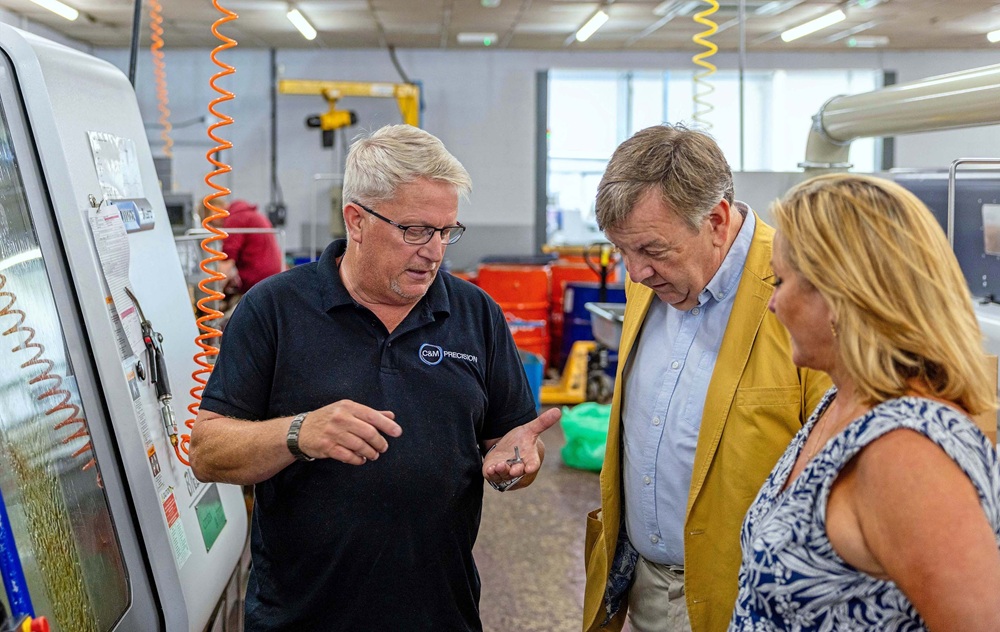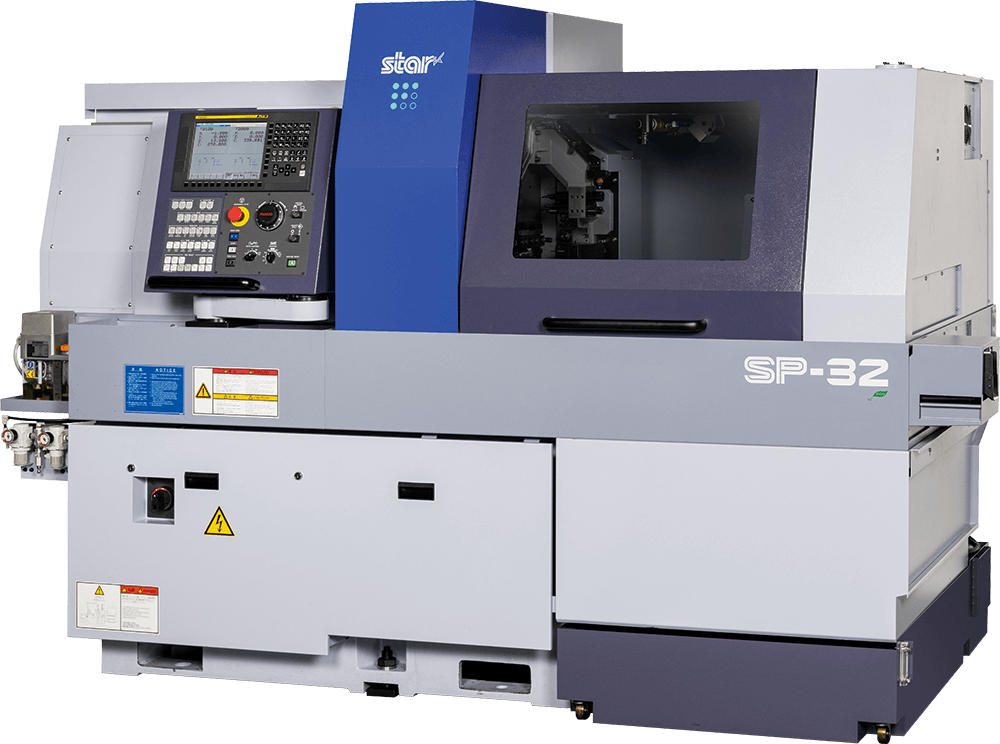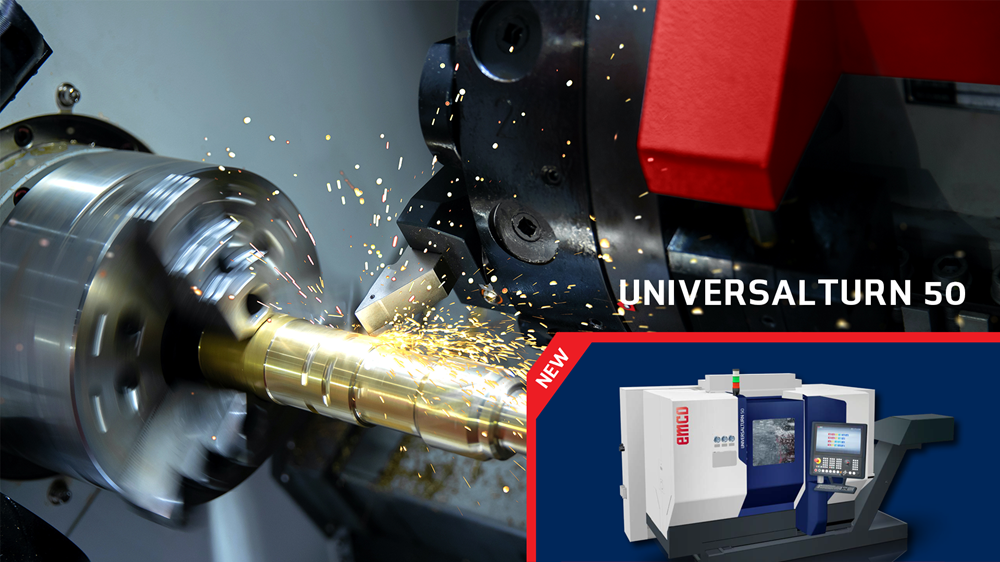German machine tool manufacturer Spinner Werkzeugmaschinenfabrik, which builds CNC lathes and machining centres at the company’s Sauerlach factory near Munich, has increased its TTS turn-milling centre range. Expanding the size of bar or billet that can be handled, the new 85 and 125 models join the 42 and 65 multi-tasking lathes introduced towards the end of 2021. The sole sales and service agent in the UK and Ireland is Whitehouse Machine Tools.
Launched at the recent EMO 2025 exhibition in Hanover, the TTS 85 and TTS 125 turning centres each have a pair of powerful motor spindles offering a bar capacity of 85 mm (80 kW/930 Nm) and 125 mm (67 kW/1254 Nm) respectively. The chucking of billets up to 500 mm diameter is possible and may be carried out in the sub spindle concurrently with bar working at the main spindle. Customers can specify a tailstock if a twin-spindle machine is not required.
Flexible, modular design allows configurations with two, three or four turrets to meet the user’s precise machining requirements. TTS-Duo, TTS-Duplex and TTS-Twin are different two-turret set ups, with the option of a steady-rest (or two) positioned below the spindle centreline. The TTS-Triplex has three turrets, with or without a steady rest, while the TTS-Quadrex is a four-turret configuration. The tool carriers above the spindles have ±100 mm of Y-axis motion, while those below do not.
The servo indexing turrets are available with 16 or alternatively 12 positions, all of which are live, and utilise BMT45 or BMT65 tool holders to ensure maximum cutting performance and accuracy of tool exchange. Driven tool power is 15 kW, torque is up to 82.7 Nm and the standard 4000 rpm maximum rotational speed may be doubled on request. More information www.wmtcnc.com






